Consultancy Data
| SR.NO. | YEAR |
| 1. | 2016-17 |
| 2. | 2017-18 |
| 3. | 2018-19 |
| 4. | 2019-20 |
This lab is equipped with
Intel Core i5,12 Gen, Asus Prime Motherboard B660, DDR4 16 GB RAM, Samsung 500 GB SSD NVME M.2 HDD, SMPS Cooler master 750 Watt, Samsung LED 27'' Monitor, Cabinet Deep Cool, Logitech Keyboard Mouse, Networking Accessories
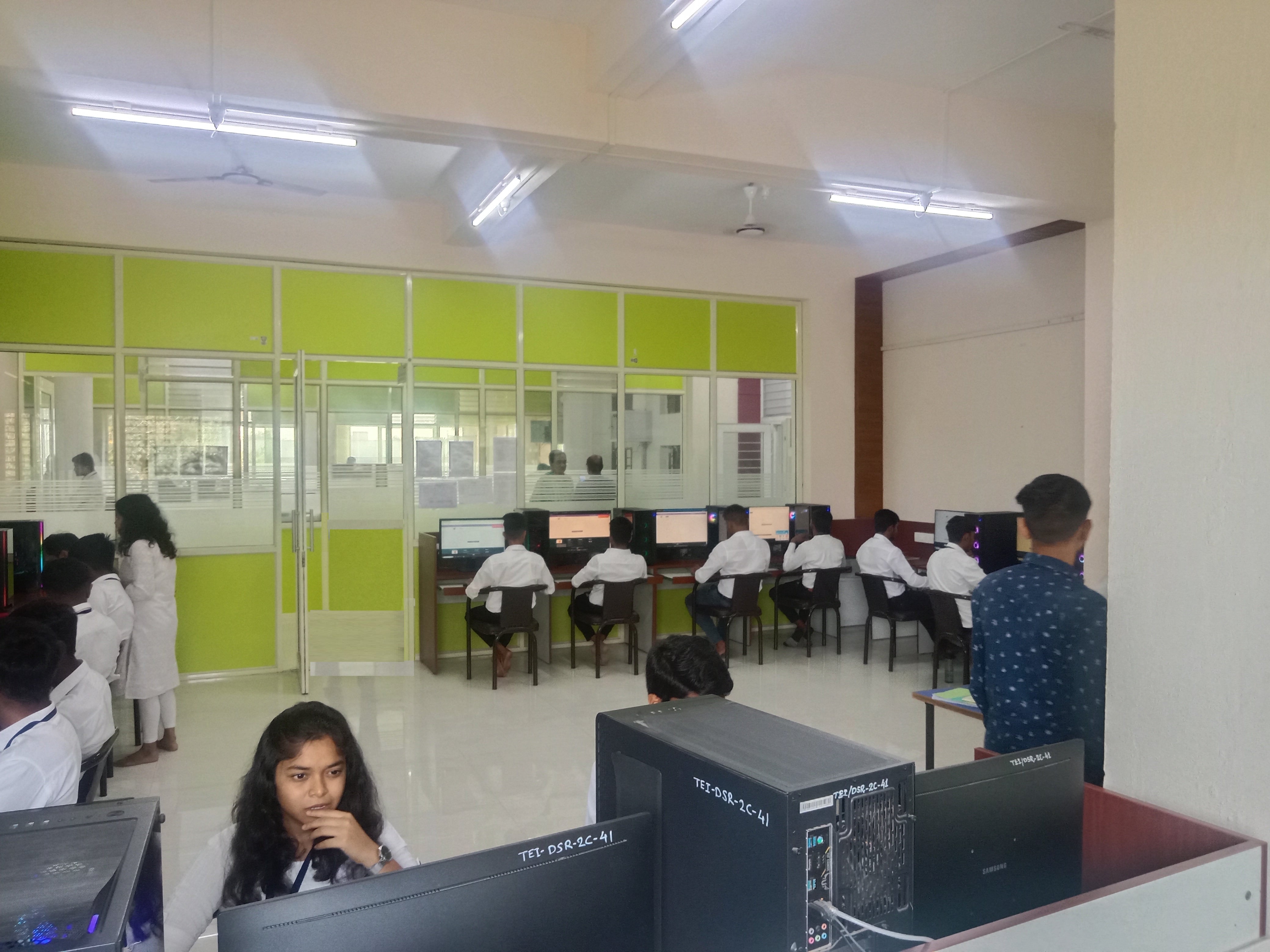 This lab is equipped with
This lab is equipped with
24'' iMac With 4.5 K Display Apple M1 Chip With 8 Core CPU,256 GB
D-Link 1210 Network Switch
iOS Applications development: XCode
 This lab is equipped with
This lab is equipped with
HP PRODESK 280 G6, Intel Core i5, 10th Generation, 8 GB DDR4 RAM, 1 TB HDD, LAN, HP USB Keyboard & Mouse, HP Cabinet +SMPS, HP 18.5 LED Monitor
D-Link 1210 Network Switch
Cisco Router 2900 Series
Cisco 24 Port Switch 2960 Series
Cisco 24 Port PoE Switch
10 KVA UPS with Tubular Battries 12v / 40 AH 6EL
 This lab is equipped with
This lab is equipped with
HP PRODESK 280 G6, Intel Core i3, 10th Generation, 8 GB DDR4 RAM, 1 TB HDD, LAN, HP USB Keyboard & Mouse, HP Cabinet +SMPS, HP 21.5 LED Monitor
D-Link 1210 Network Switch
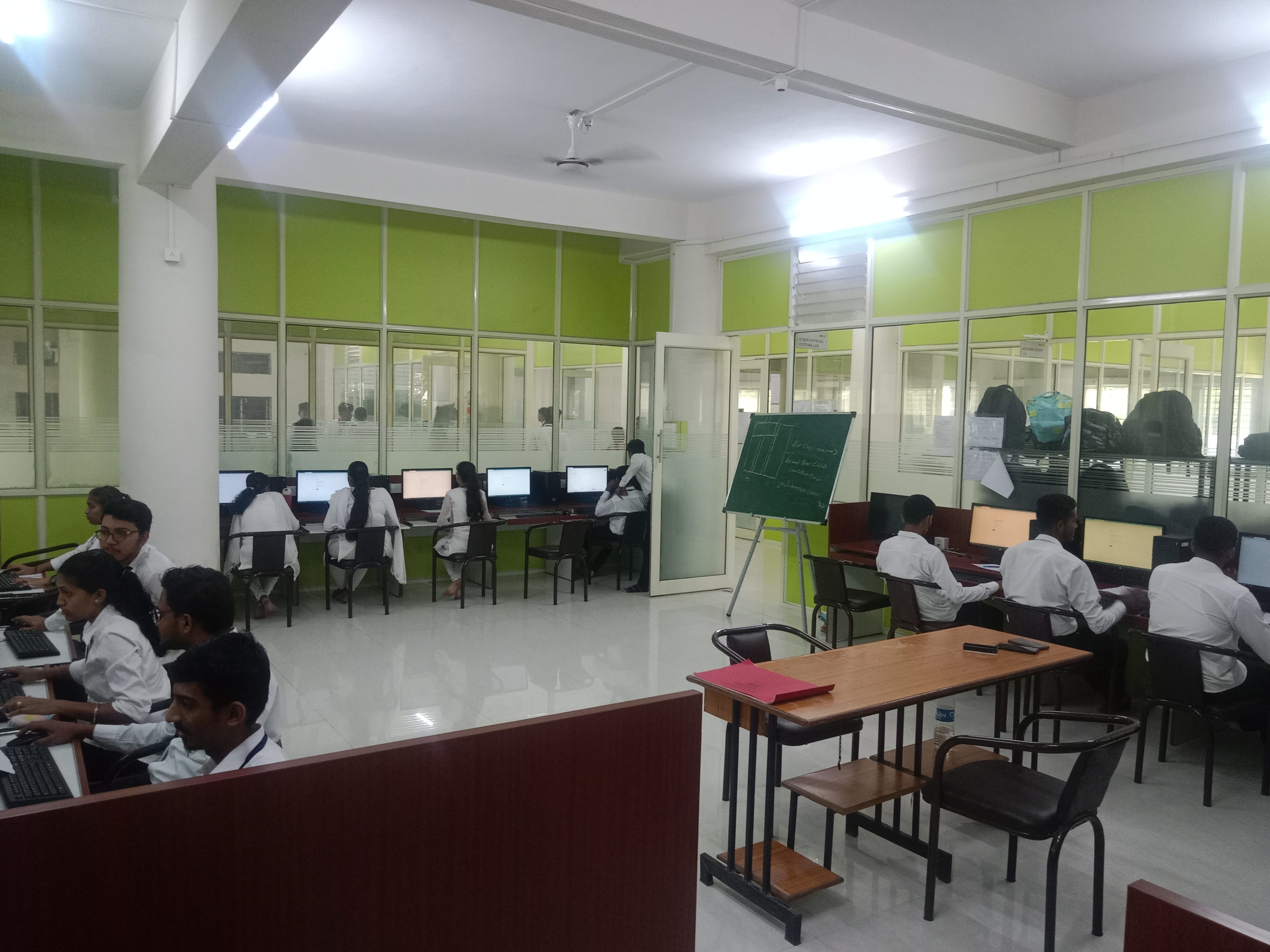 This lab is equipped with
This lab is equipped with
HP PRODESK 280 G6, Intel Core i3, 10th Generation, 8 GB DDR4 RAM, 1 TB HDD, LAN, HP USB Keyboard & Mouse, HP Cabinet +SMPS, HP 21.5 LED Monitor
D-Link 1210 Network Switch
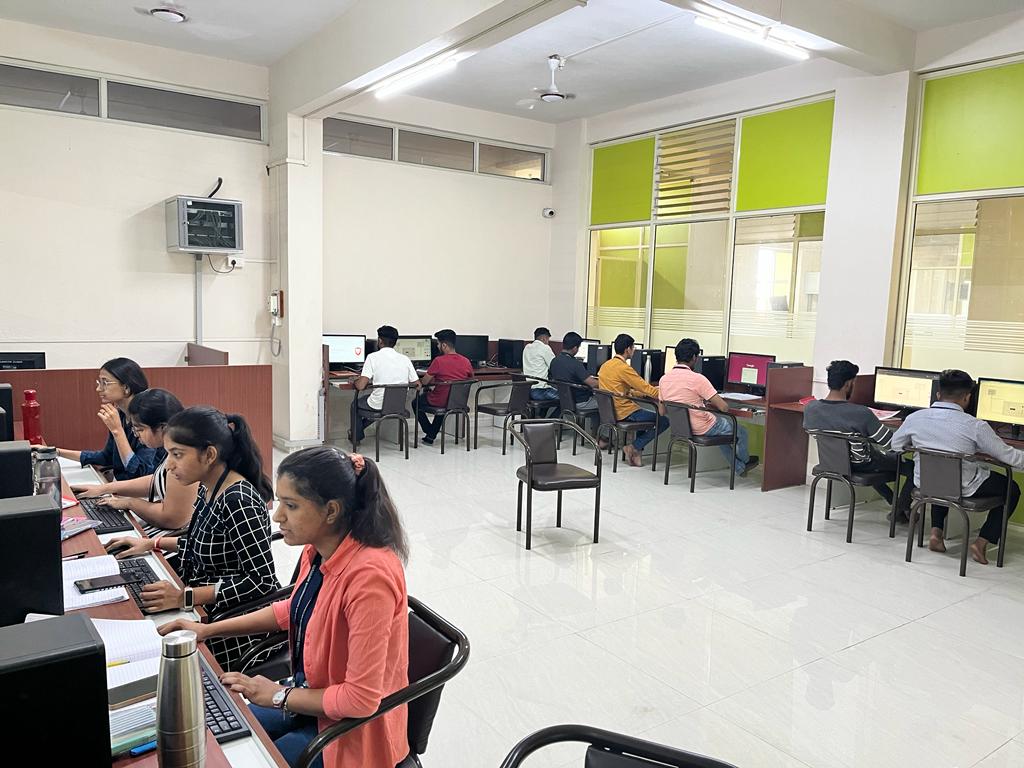 This lab is equipped with
This lab is equipped with
 This lab is equipped with
This lab is equipped with
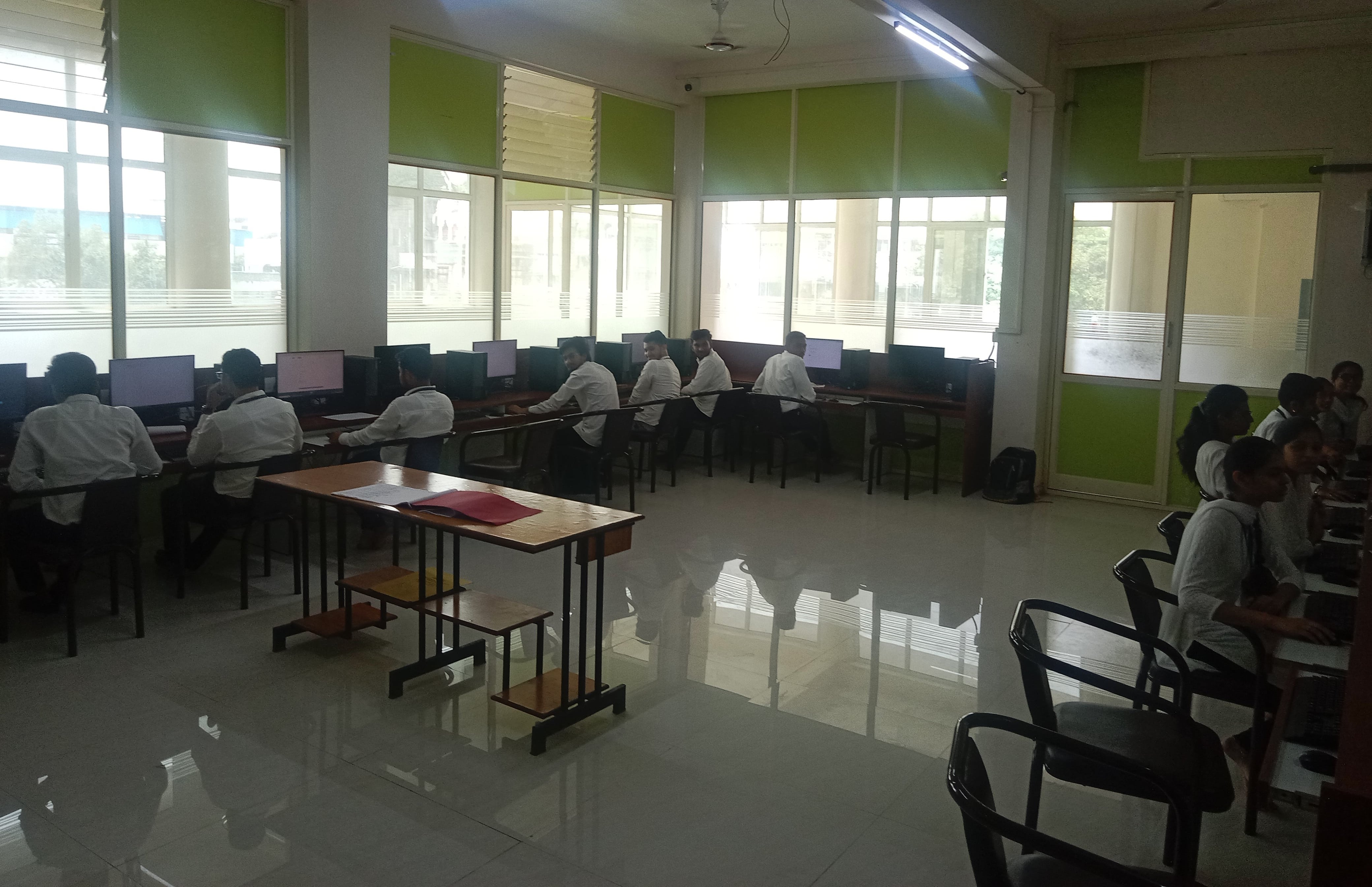 This lab is equipped with
This lab is equipped with
HP 280 G9 Desktop, Intel Core i5, 12 Gen, 8 GB DDR4 RAM, 512 GB SSD, Wifi BT, 1 TB HDD, HP 21.5 Monitor
Networking Accessories
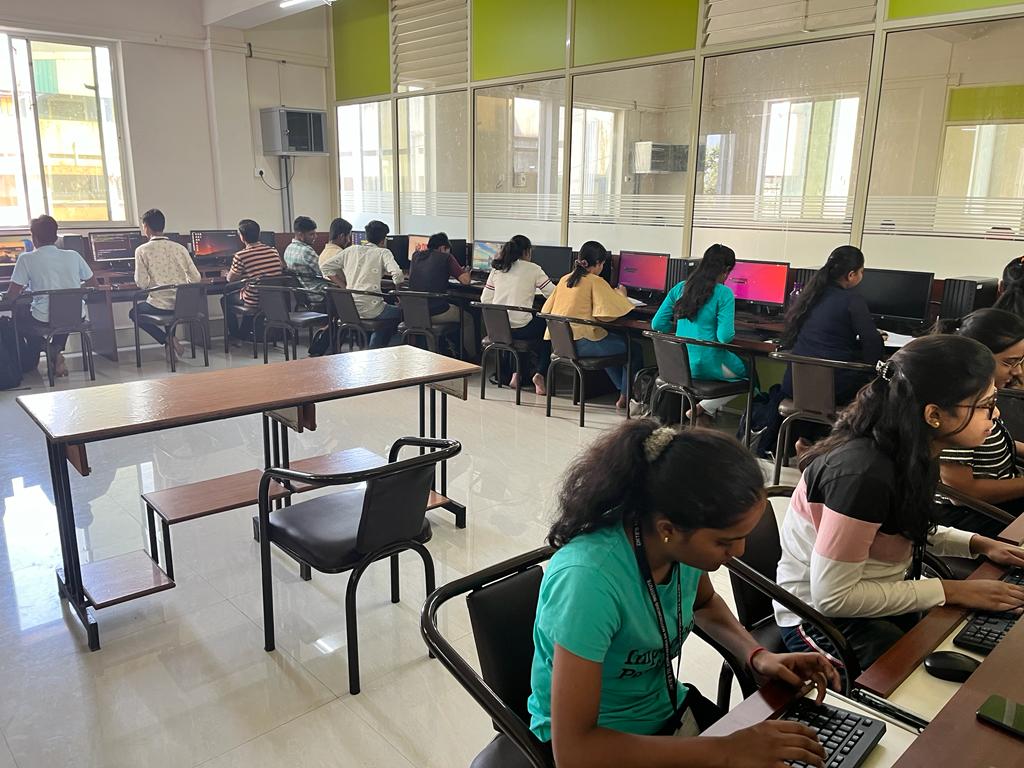
Mandatory Disclosure
| Institue Information | |
|---|---|
| Name | DKTE Society's Textile and Engineering Institute |
| Address | Rajwada, P.O.Box. No.130, Ichalkaranji |
| City | Ichalkaranji |
| Pin | 416115 |
| State | Maharashtra |
| Phone Number | (0230) 2421300, (0230) 2439557 / 58 / 59, (0230) 2432340 |
| This email address is being protected from spambots. You need JavaScript enabled to view it. | |
| Website | https://www.dkte.ac.in/ |
| Fax | (0230) 2432329 |
| Nearest railway | Hatkanangale (6 km) |
| Nearest airport | Kolhapur (28 km) |
| AICTE Approval Letter | F.No. Western/1-44643748454/2025/EOA |
| Date and period of last approval | 10-Apr-2025 for Academic Year |
| AICTE Institute Permanant Id | 1-2404851 |
| Type of Institute | Private-Self Financing |
| University | |
| Name | Shivaji University, Kolhapur |
| Address | Vidyanagar, Kolhapur- 416 004. Maharashtra, INDIA. |
| Websit | http://www.unishivaji.ac.in/default.aspx |
| Director Information | |
| Name | Prof.(Dr.) L. S. Admuthe Director |
| Exact Designation | Director |
| Phone Number | 9404987166 |
| e-mail Id | This email address is being protected from spambots. You need JavaScript enabled to view it. |
| Governance | |
| Organisation Chart | Organisation Chart |
| Governing Council | Governing Council |
| Academic Council | Academic Council |
| Bord of Studies |
Textile Engineering, Electronics Engg., Mechanical Engg, |
| Institution's Innovation Council (IIC) | Institution's Innovation Council (IIC) |
| Student Support System | Student Support System |
| Rules and Regulations | |
| Rules and Regulations for Academics | |
| Rules and Regulations for Exam | Exam |
| Academic Calendar | |
| Academic Calendar | Click here |
| International Collaboration | |
| International MoU | MoU |
| International Student Exchange Program | Credit Transfer |
| International Internship | Internship |
| International Activities | Activities |
| Courses Offered | |
|
Courses Information (Vision-Mission, Overview Achievements, Syllabus, BoS, Faculty, Student Activities, Industry Institute Interaction, News Letters, Laboratories and workshops, Results) |
B. Tech. Textile Technology Master of Computer Application |
| NBA Accreditation Status | |
| 1. Name/List of Programmes/ Courses Accredited |
1) B.Tech. Textile Technology 2) B.Tech. Man Made Textile Technology 3) B.Tech. Textile Plant Engineering 4) B.Tech. Textile Chemistry 5) B.Tech. Fashion Technology 6) B.Tech. Mechanical Engineering 7) B.Tech. Computer Science and Engineering 8) B.Tech. Electronics and Telecommunication Engineering 9) B.Tech. Civil 10) B.Tech. Electrical 11) Master of Business Administrator |
| 2. Applied for Accreditation |
Applied but Visit not happened: NIL Visit happened but result awaited: NIL |
| 3. List of programmes/ courses Not Applied |
1) B.Tech. Computer Science and Engineering (Artificial Intelligence and Machine Learning) (Newly Started hence Not Eligible). 2) B.Tech. Artificial Intelligence (AI) and Data Science (Newly started hence Not Eligible). 3) M.Tech. Textile Engineering 4) M.Tech. Electronics Telecommunication 5) M.Tech. Mechanical Engineering 6) M.Tech. Computer Science and Engineering 7) M.Tech. Defence Technology (Newly started hence Not Eligible). |
| NAAC Accreditation Status | |
| 1. Accredited | Accredited A + with CGPA of 3.30 in the second cycle of Assessment |
| 2. Applied for Accreditation | -- |
| 3. Applied but Visit not happened | -- |
| 4. Visit happened but result awaited | -- |
| 5. Not Applied | -- |
| Admission Process | Admission Process |
| Fee | |
| Fee Structure | Fee Structure |
| Scholarship Notice | Scholarships |
| Fees Regulating Authority Letter | Sanction Fee |
| Financial Audit Report | Audit Report |
| Faculty Details with Qualification | |
|
Coursewise Faculty Information (Qualification, Experience, Specialization, Paper publication ) |
B. Tech. Textile Technology |
| Training and Placement | |
| Placement count, company name, packages | Training and Placement |
| Infrastructure Available | |
| Laboratory and Workshops | |
|
Coursewise Laboratory |
B. Tech. Textile Technology B. Tech. Manmade Textile Technology B. Tech. Textile Plant Engineering B. Tech. Textile Chemistry B. Tech. Fashion Technology B. Tech. Electronics Engineering B. Tech. Mechanical Engineering B. Tech. Computer Science & Engineering B. Tech. Electronics & Telecommunication Engineering B. Tech Civil Engineering B. Tech Electrical Engineering M. Tech. Textile Engineering M. Tech E & TC Engineering M. Tech Mechanical Engineering–Product Design and Development M. Tech. Computer Science & Engineering |
| Library | |
|
Area Section Informations e-resources, e-materials Memberships |
Library |
| Facilities | |
| Common Facilties | Facilities |
| Hostel | Hostel |
| Central Computing Facility | Central Computing Facility |
| Bus | Bus |
| Guest House | Guest House |
| Indoor and Outdoor Sports | Sports |
| Reserch Activities | |
| Government Sponsered Projects | Projects Information |
| Patents | Patents Information |
| Industry Sponsored Laboratory | Laboratory Information for Research |
| MoU with Industry | MoU |
| Details of Ph.D students enrolled | |
| Details of Ph.D students enrolled with enrolment number, date of enrolment, topic, name of supervisor, likely completion year etc |
Textile, Electronics, Mechanical, Computer Sci. and Engg. |
| Student Centric Activities | |
| Student Co-Curricular Activities | Student Co-Curricular Activities |
| Student Extra-Curricular Activities | Student Extra-Curricular Activities |
| Best Practices | |
| Best Practices | Best Practices |
| Undertaking | |
| Undertaking by Director | Undertaking |
| AQAR Undertaking | Undertaking |
| Right to Information | CLICK HERE |
IBM System Center of Excellence(SCoE) Program
( For All Branches of Engineering and Technology)
This IBM ICE Diploma Offering is given through the System Centre of Excellence (SCoE) program. These are short courses that aim to educate students on emerging technologies in specific Industry verticals. They are highly intensive and domain-specific, training students via both classroom and Industry project-based learning.
IBM ICE Diploma in Artificial Intelligence & Machine Learning ( 2 Year Program)
| Sr. No. | Subject | Semester |
| 01 | Predictive Analytics ( Statistics) | II |
| 02 | Machine Learning | III |
| 03 | Deep Learning | IV |
| 04 | Applications of Machine Learning in Industry | V |
| 05 | Project | VI |
| 06 | Examination by IBM |
IBM ICE Diploma in Data Science ( 2 Year Program)
| Sr. No. | Subject | Semester |
| 01 | Introduction to Data Analytics | II |
| 02 | Predictive Analytics | III |
| 03 | Descriptive Analytics | IV |
| 04 | Big data Analytics | V |
| 05 | Project | VI |
| 06 | Examination by IBM |
Artificial intelligence (AI) is impacting the future of virtually every industry and every human being. AI applications will be huge in sectors in which a large proportion of time is spent collecting and analyzing data: Applications of AI-powered computer vision will be particularly significant in the transport sector. Due to the recent advances in the field of Artificial Intelligence and machine learning, AI has been gaining much more popularity.
Department of Computer Science and Engineering has organized Research Symposium on “Emerging Trends in Artificial Intelligence” on 25 and 26th February 2022.
Original unpublished articles are invited for submission to the following tracks, but are not limited to:
• Machine Learning
• Deep Learning
• Reinforcement Learning
• Robotics
• Computer vision
• Natural Language Processing
• Computer Vision
• Recommender Systems
• Internet of Things
• Generative Adversarial Network (GAN)
• AI in Healthcare
For registration: click here

Page 17 of 39